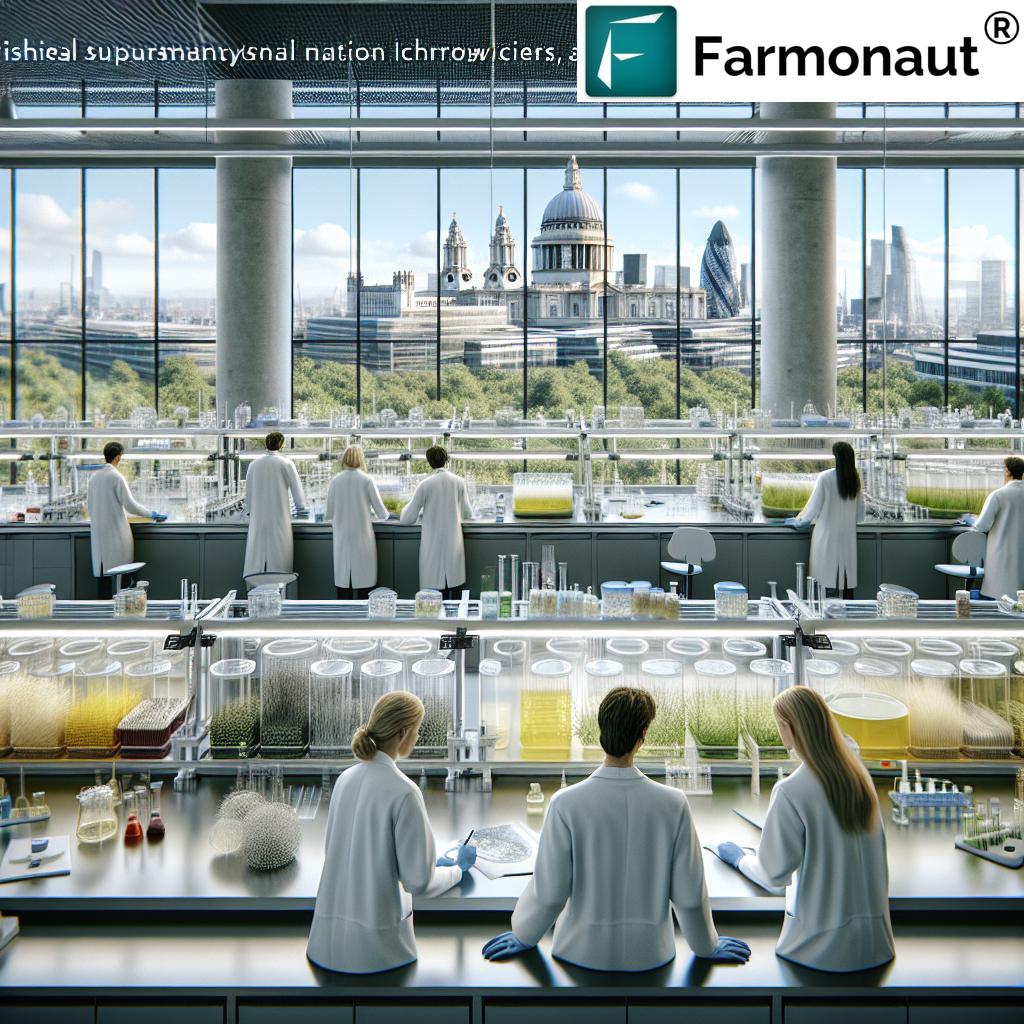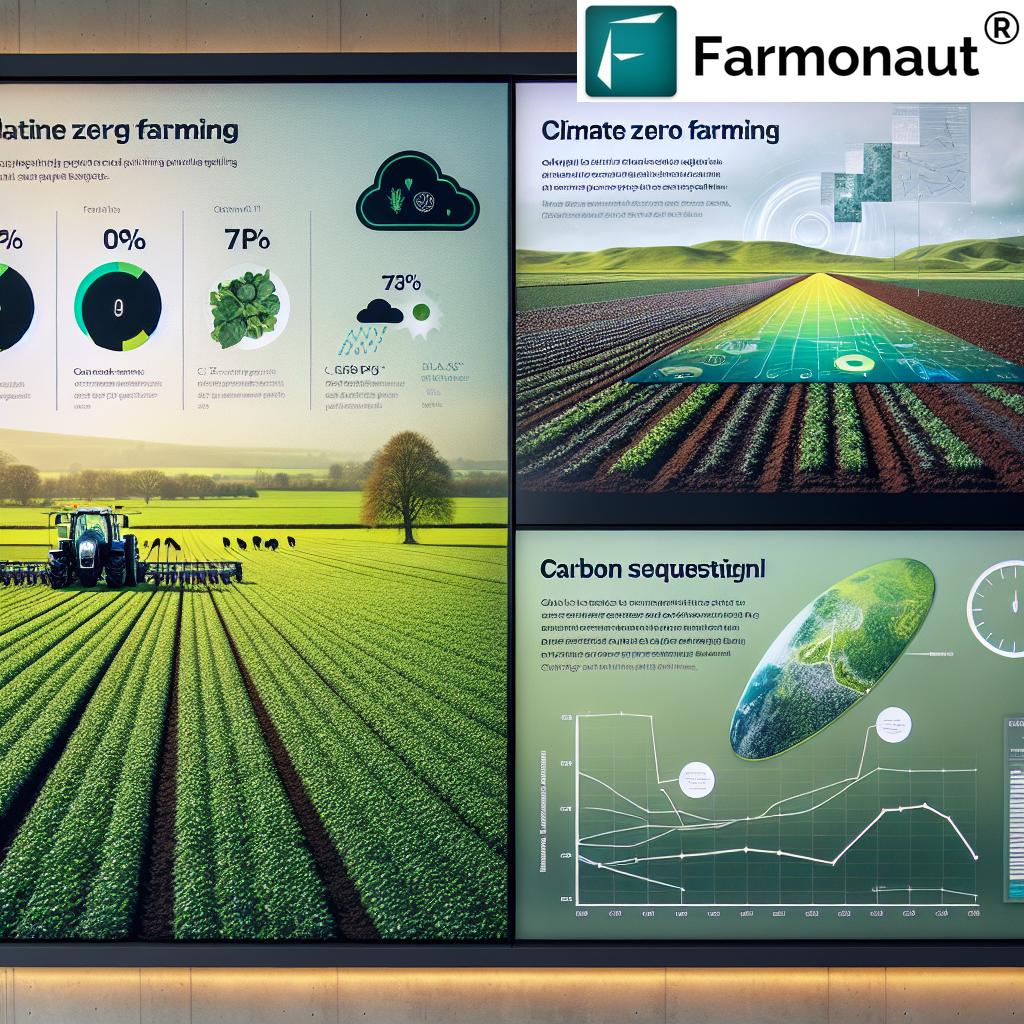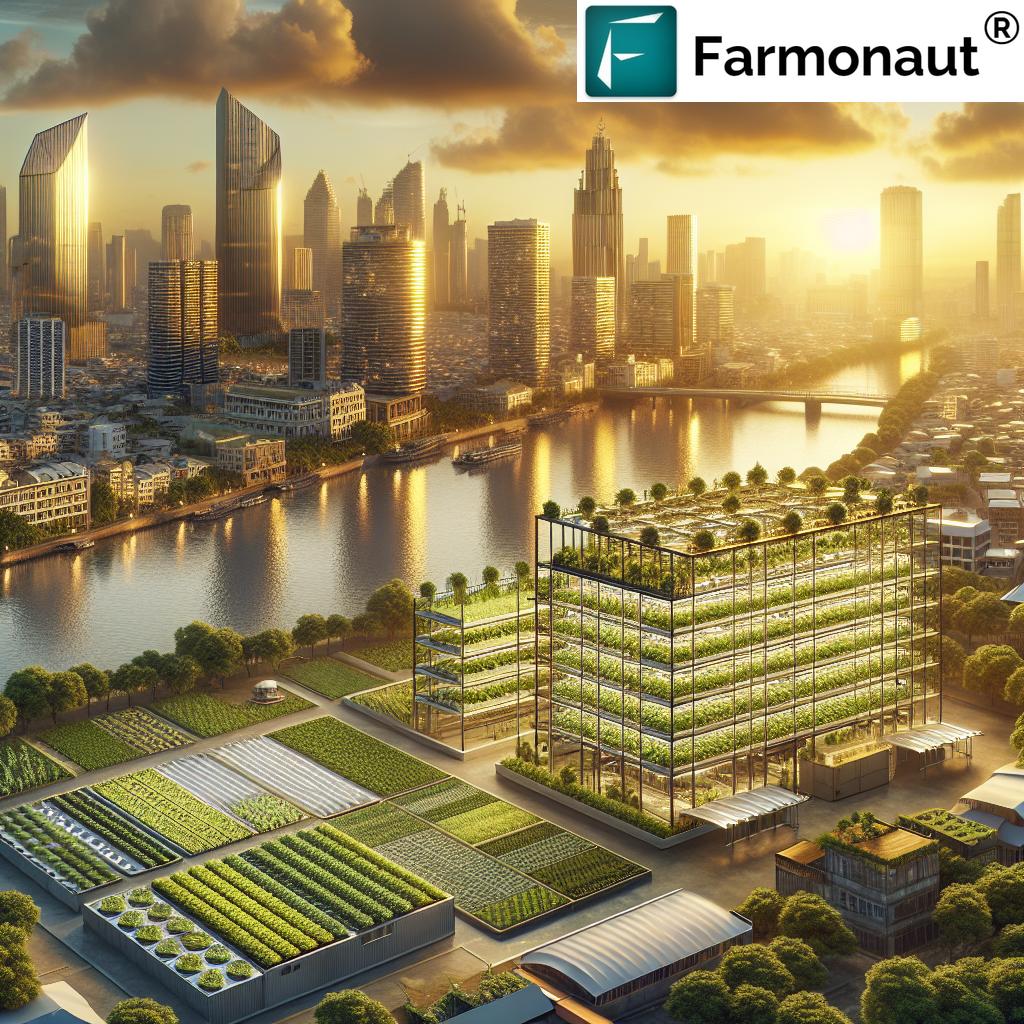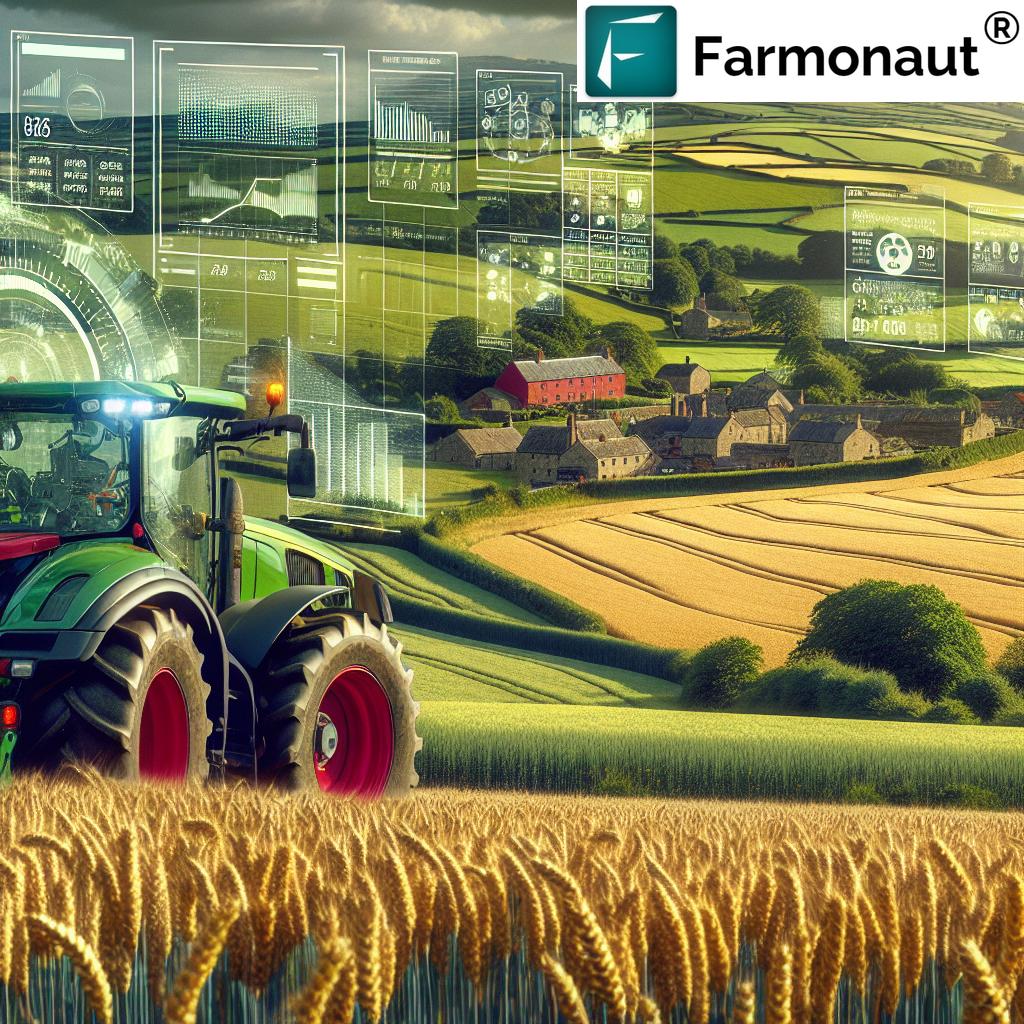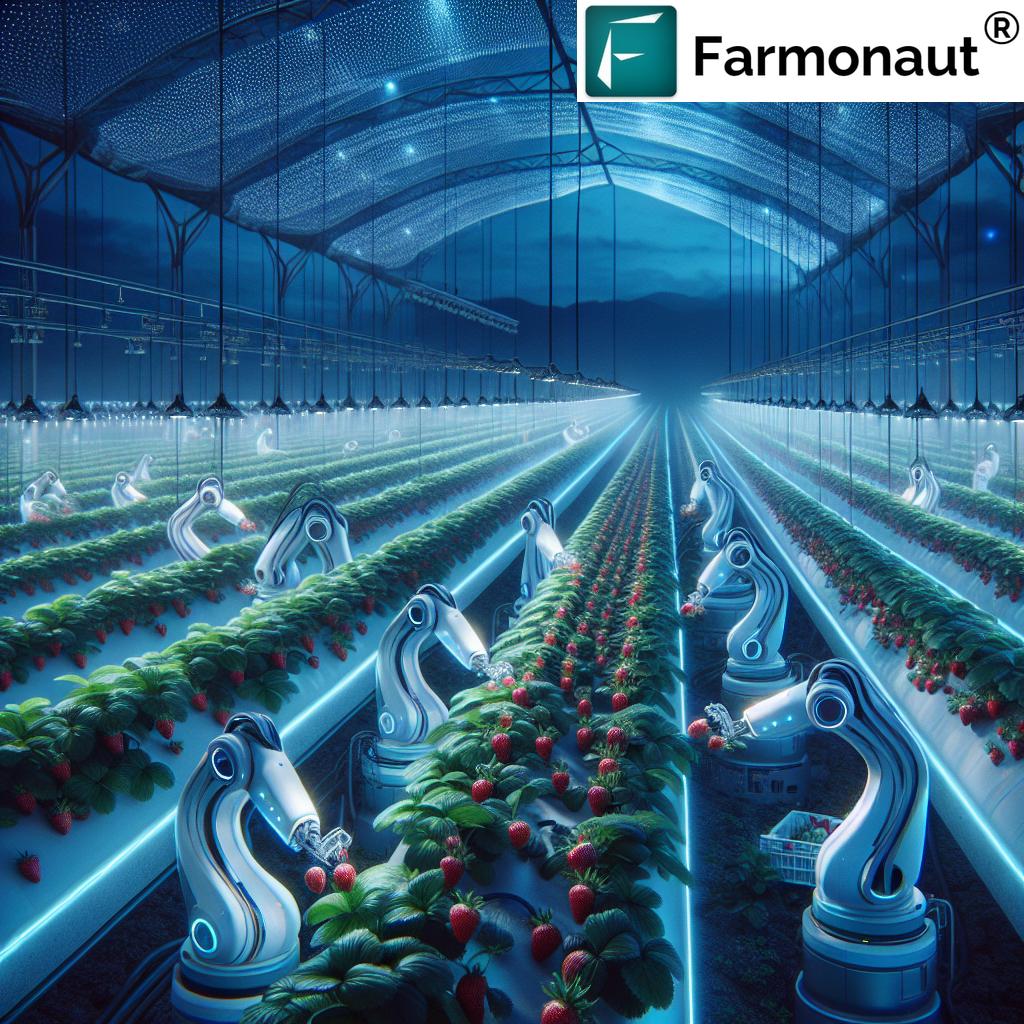7 Engineering Biology Innovations in London for a Sustainable Future
“London invested over £1 billion in engineering biology innovations for sustainable healthcare and agriculture since 2020.”
Introduction: Unveiling Engineering Biology in London
Engineering biology stands at the core of some of the most transformative technology and scientific advances in recent decades. In London, England, these groundbreaking efforts are backed by robust government investment, visionary leadership, and innovative minds across academia, industry, and the public sector.
We are witnessing a new era where engineering principles directly inform the design and scale-up of biological systems—setting the stage for revolutionary sustainable technology solutions for both people and the planet. This comprehensive guide explores seven of the most impactful engineering biology (EngBio) innovations emerging from London and reveals their vast potential in healthcare, agriculture, materials, and beyond.
What is Engineering Biology?
Engineering biology—often called EngBio—is a rapidly advancing scientific discipline that fuses biology with engineering to redesign and manufacture new biological systems, components, and processes. By applying engineering approaches (design-build-test-learn), we can create biologically derived materials, sustainable fuels, next-generation crops, and even synthetic cells for precise industry applications.
- Scope: Spans healthcare, sustainability, energy, materials, agriculture, chemicals, and more.
- Techniques: Includes genome editing, synthetic gene circuits, custom microbes, and programmable biomanufacturing platforms.
- Goals: To deliver cleaner, more efficient, and resilient solutions for society’s greatest needs.
How London’s Government Is Supporting Engineering Biology for a Sustainable Future
The UK’s government, especially through the Government Office for Science, has recognized engineering biology as a core driver of future innovation. Professor Dame Angela McLean’s recently launched Foresight report—Engineering Biology Aspirations—illustrates the wide range of potential benefits, including in healthcare, environmental sustainability in agriculture, and clean energy development.
- Funding & Investment: Over £1 billion in recent years, with a significant portion targeted at Engineering Biology Mission Hubs and strategic research development.
- Strategic Policy: Focused on regulatory innovation in science to streamline the path from lab discoveries to market-ready, safe, and ethical products.
- Collaboration: Initiatives connect industry, public stakeholders, and academia for broad impact.
Lord Vallance, the science minister, emphasizes “our commitment to the UK’s burgeoning engineering biology sector is clear… supporting the missions that underpin the Government’s Plan for Change.”
This united effort is propelling London to global leadership in engineering biology for economic growth, sustainable technology solutions, and resilient bio-based industries.
| Innovation Name | Application Area | Brief Description | Estimated Environmental Impact | Estimated Adoption Timeline | Potential Market Value |
|---|---|---|---|---|---|
| Lab-Grown Blood | Healthcare | Manufactured blood cells for safe, universal transfusions and disease modelling | Reduce hospital infection risk, 15-20% less reliance on donors | 5-7 years | $5 – $7 Billion (by 2030) |
| Biologically Derived Fashion Materials | Materials, Fashion | Biopolymer-based textiles and sustainable leathers to replace pollutive inputs | Up to 30% reduction in fashion’s carbon emissions and water use in London | 3-5 years | $3 – $5 Billion (by 2028) |
| Nitrogen-Fixing Cereal Crops | Agriculture | Engineered crops that require minimal or no nitrogen fertilizer inputs | 30-40% lower synthetic fertilizer use, reduced groundwater pollution | 5-8 years | $10+ Billion (global cereal sector) |
| Microbial Mining | Industry, Clean Energy | Bioengineered microbes extract and recycle critical metals (e.g., lithium, cobalt) | 20% less mining waste, mitigated metal scarcity for green tech | 6-10 years | $2 Billion (UK Sector) |
| Sustainable Fuels & Chemicals from Waste | Energy, Chemicals | Biological processes turning agri-industrial waste into valuable fuels/chemicals | Up to 40% reduction in landfill waste and GHG emissions | 4-7 years | $15+ Billion (UK Bioeconomy) |
| Biological Platforms for Disease Detection | Healthcare, Environment | Biosensors using synthetic circuits for real-time disease/environment monitoring | Faster detection, 25% faster outbreak containment | 2-3 years | $1 – $2 Billion |
| Synthetic Biology for Environmental Monitoring | Agriculture, Sustainability | Bioengineered systems for monitoring soil, air, and water quality | 30% improvement in agricultural management, reduced inputs | 3-5 years | $4 Billion |
“Biologically derived materials could reduce industrial carbon emissions in London by up to 30% by 2030.”
The Seven Pioneering Engineering Biology Innovations in London
Let’s explore these engineering biology breakthroughs. Together, they demonstrate how London is shaping a more sustainable, prosperous, and resilient future—locally and globally.
1. Lab-Grown Blood: Life-Saving Innovation in Healthcare
Among the most promising advances, lab-grown blood represents a fusion of technology and biology for life-changing healthcare outcomes.
- Sustainable Technology Solutions: Instead of relying on donated blood, scientists can now manufacture red blood cells in controlled laboratory settings.
-
Benefits:
- Safe, universal blood for transfusions; eliminating compatibility issues.
- Reduces transmission risk of infectious diseases.
- Scalable to meet global shortage—improves resilience of healthcare systems.
-
London’s Impact:
- Home to renowned research hospitals and engineering biology hubs advancing production scale-up.
- Supports personalized medicine and rare blood types.
By accelerating lab-grown biological materials, we are redefining standards for transfusions and clinical research.
2. Biologically Derived Materials for Sustainable Fashion & Industry
The fashion and industrial sectors in London are notorious for their environmental repercussions, from excessive water consumption to chemical emissions. Engineering biology is transforming this landscape through the development of biologically derived materials such as:
- Mycelium leathers: Grown from fungi, these offer an eco-friendly, cruelty-free alternative to animal hides.
- Cellulose-based textiles: Plant or microbe engineered fibres with dramatically reduced water and energy use.
- Biopolymer replacements: Sustainable substitutes for petroleum-based synthetics, lowering carbon footprint and microplastic pollution.
Environmental Sustainability in Agriculture and manufacturing is further advanced when supply chains adopt blockchain-based product traceability tools. These platforms guarantee transparency, fostering trust in both fashion and food industries while enhancing sustainability from origin to end consumer.
3. Nitrogen-Fixing Cereal Crops: Transforming Environmental Sustainability in Agriculture
Current agricultural practices depend heavily on synthetic nitrogen fertilizers, contributing to:
- Nitrous oxide emissions (a potent greenhouse gas)
- Groundwater contamination
- Reduced soil biodiversity
Engineering biology delivers a breakthrough in the form of nitrogen-fixing cereal crops. By transferring genes from nitrogen-fixing bacteria or developing symbiotic pathways, cereal crops—like wheat and rice—can fix atmospheric nitrogen naturally, reducing or eliminating fertilizer needs.
- Impact: Lower input costs, dramatically cut emissions, and less waterway pollution—delivering sustainable technology solutions to agriculture worldwide.
- Example Application: When coupled with Farmonaut’s carbon footprinting tools, farms can assess and reduce agricultural climate impacts in real time, supporting efforts towards net-zero food production.
This is a shining example of the future of biological systems in action—where development is both clean and resilient.
4. Microbial Mining: Engineering Biology to Overcome Metal Scarcity
Green energy infrastructure—from electric vehicles to wind turbines—relies on critical metals like lithium, cobalt, and rare earths. Traditional extraction methods are environmentally intensive and often unsustainable.
- Microbial mining leverages engineered microbes to selectively extract, process, and recycle metals from ores and e-waste.
-
Sustainable Technology Solutions:
- Reduces reliance on open-pit mining.
- Mitigates waste, toxic runoff, and community exposure.
- Secures local supply chains for clean energy development in London and beyond.
As the need for reliable metal supply grows, bioengineered mining represents a critical step for the industry—protecting both economic growth and environmental sustainability.
5. Sustainable Fuels and Chemicals from Waste: Clean Energy for a Greener Planet
The traditional model of chemical and fuel production depends on fossil feedstocks, creating large carbon footprints. Engineering biology is rapidly changing that with new biological processes that:
- Convert organic waste: Agricultural and industrial waste streams become feedstock for biologically manufactured fuels, plastics, or solvents.
- Close the loop: Circular bioeconomy reduces GHG emissions and landfill reliance.
- Industrial-scale opportunities: The bioeconomy can transform sectors from transportation to packaging.
Early adopters can track and manage their environmental impact efficiently with solutions like Farmonaut’s carbon monitoring system, which quantifies climate benefits in real time for both businesses and policymakers.
6. Engineered Biological Systems for Disease Detection
Early and accurate detection is the frontline of effective healthcare and outbreak response. Engineering biology is empowering the next generation of biosensors using:
- Synthetic gene circuits: Trigger visible or digital outputs in response to pathogens or environmental toxins.
- Point-of-care applications: Real-time diagnostics deployed in hospitals, farms, and even at home.
- Scalable deployment: Accelerates public health response, supports environmental monitoring, and reduces costs.
London’s research hospitals and technological hubs are scaling these innovations rapidly—setting the bar for global healthcare systems.
7. Synthetic Biology Platforms Supporting Environmental Monitoring
Advanced synthetic biology platforms are now able to sense, analyze, and even remediate environmental issues in real-time. London is at the forefront in deploying systems that:
- Track soil health, air, and water quality across urban and rural regions.
- Use bioengineered organisms to bind or break down toxins, supporting agriculture and urban sustainability.
- Guide data-driven agricultural management via large-scale farm management software.
This wave of innovation is creating a greener, safer London—and a model for the world to emulate.
API Developer Docs
Crop Loan and Insurance Verification
Fleet and Resource Management Tools
Crop Plantation & Forest Advisory Suite
Farmonaut: Empowering Sustainable Agriculture with Engineering Biology Insights
At Farmonaut, we are driven by a mission to harness data-powered sustainable technology solutions and enable precision agriculture for everyone. We do this not only by leveraging satellite imagery and artificial intelligence, but also by championing innovations in engineering biology—by offering tools that facilitate their adoption into daily agricultural practice.
- Real-Time Crop Health Monitoring: Our satellite-based analytics provide farmers and agribusinesses with actionable insights into plant health, irrigation, and pest or disease threats, leading to cleaner yields and less waste.
- Jeevn AI Advisory System: A proprietary engine for seamless integration of the latest research and precision advisory, enhancing crop productivity and resource efficiency.
- Blockchain Traceability: Supporting transparent, end-to-end traceability, enhancing confidence for both producers and consumers—vital for validating biologically derived materials in modern supply chains.
- Resource & Fleet Management: Our modules help reduce operational costs, energy consumption, and environmental impact for farms and agribusinesses of all sizes.
- Carbon Footprint Tracking: Essential for environmental sustainability in agriculture and aligns with eco-certification and compliance targets in London’s evolving regulatory framework.
By making these advanced solutions affordable, accessible, and available via Android, iOS, web App, and API, we empower stakeholders throughout the agricultural sector to actively pursue engineering biology for economic growth and a more sustainable future.
The Future of Engineering Biology: Regulatory Innovation and Continued Development
- Regulatory innovation in science: London is at the forefront of designing agile regulation processes for rapidly evolving engineering biology products. This ensures that new therapeutics, materials, and crops are safe, ethical, and beneficial to society before mainstream adoption.
- Pipeline from lab to market: Initiatives like the Regulatory Innovation Office and Mission Hubs are improving the commercialization trajectory for new biological systems and eng bio products.
- Continued investment and research: Ongoing public and private funding will be critical for scale-up and delivery, with a focus on sustainability, equity, and economic growth across all sectors.
Frequently Asked Questions (FAQ)
1. What exactly is engineering biology?
Engineering biology is the application of engineering principles to biology, enabling us to design, build, and manufacture new biological systems, materials, and products to address a wide range of sustainability, healthcare, and industrial challenges.
2. How does engineering biology contribute to a sustainable future in London?
It supports the production of clean energy, biologically derived materials, next-gen crops, and more. London’s government and innovation hubs are pioneering practical solutions to reduce emissions, enhance healthcare, and promote environmental sustainability in agriculture.
3. How do Farmonaut’s products support engineering biology and sustainability?
Farmonaut’s platform offers real-time crop health monitoring, AI-based advisory, carbon footprint tracking, and blockchain traceability, equipping farmers and industry with the latest sustainable technology solutions for more efficient, sustainable, and transparent operations.
4. When will lab-grown blood and biologically derived fashion materials be available in London?
Lab-grown blood could see mainstream clinical use within 5–7 years; biologically derived materials in fashion may see wide-scale adoption in London within the next 3–5 years as regulatory frameworks and manufacturing capacities mature.
5. Why is regulatory innovation in science important for engineering biology?
Because engineering biology advances rapidly, regulatory innovation is crucial to ensure that new products are both safe and beneficial. London’s investment in agile regulation means faster, responsible adoption of these solutions in the public interest.
Farmonaut Subscription Plans
Want to unlock the full power of data-driven and engineering biology based precision agriculture? Explore our flexible, scalable subscription offerings below:
Conclusion: London’s Global Leadership in Engineering Biology
London is pioneering the dawn of a new biological age—where engineering biology and sustainable technology solutions converge to resolve the most pressing issues affecting our society, planet, and economic prospects. From lab-grown biological materials saving lives to breakthrough crops and pollution-friendly textiles, the city is an innovation engine and role model for the world.
As research, investment, and regulatory clarity continue to expand, the next decade promises even greater advances in healthcare, environmental sustainability in agriculture, energy, and beyond. At Farmonaut, we remain committed to empowering farmers, agribusinesses, and industries with the digital, biological, and data-driven tools they need to be successful stewards of a more sustainable future.
Join us on the journey to a cleaner, smarter, more resilient world—powered by engineering biology and next-generation technology solutions.





